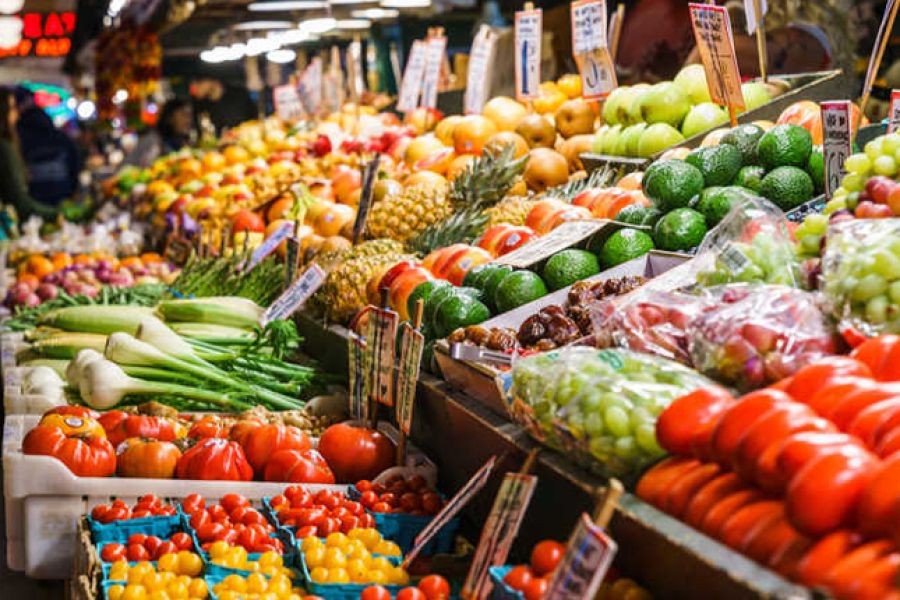Imagine a bustling farmers' market on a crisp Saturday morning in Wellington, where locals gather to buy fresh produce directly from farmers. This vibrant scene is part of a transformative movement reshaping how New Zealanders source and consume their food. The farm-to-table movement, emphasizing locally-sourced, sustainable eating, is not just a trend; it’s a shift in culinary culture that holds economic, environmental, and health implications for Kiwis.
How It Works: A Deep Dive into Farm-to-Table
At its core, the farm-to-table movement is about reducing the distance between food production and consumption. This approach ensures that food is fresher, with fewer preservatives, and supports local economies by prioritizing local farmers and producers. In New Zealand, this translates to shorter supply chains and a focus on sustainability.
The Rise of Local Farmers Markets
According to Stats NZ, there has been a 15% increase in the number of farmers' markets across the country within the last five years. These markets not only offer fresh produce but also foster community connections. By buying directly from local farmers, consumers enjoy seasonal produce and have the opportunity to learn about sustainable farming practices firsthand.
Sustainability at the Forefront
Sustainability is a significant driver behind the farm-to-table movement. The Ministry of Business, Innovation, and Employment (MBIE) reports that sustainable agriculture practices are becoming increasingly important for New Zealand's economy. By reducing reliance on imported foods and minimizing transportation emissions, the farm-to-table approach aligns perfectly with New Zealand's environmental goals.
Data-Driven Insights and Industry Analysis
In a country where agriculture accounts for a significant portion of the GDP, the farm-to-table movement has far-reaching implications. The Reserve Bank of New Zealand notes that agriculture contributes approximately 6% to the national GDP, highlighting the sector's importance.
Case Study: Wholesome Kiwi – A Local Success Story
Problem: Wholesome Kiwi, a small farm in the Waikato region, struggled with the fluctuating prices of export markets and sought to stabilize its income through local channels.
Action: The farm pivoted to a farm-to-table model, focusing on direct sales to local consumers. They leveraged a subscription model, offering weekly vegetable boxes delivered to customers' doorsteps.
Result: Within a year, Wholesome Kiwi saw a 25% increase in revenue. The direct-to-consumer model reduced dependency on volatile export markets and increased customer loyalty.
Takeaway: This case illustrates the potential for local farmers to thrive by embracing direct sales models, highlighting a viable path for others in the agriculture sector.
Pros and Cons Analysis
Pros of the Farm-to-Table Movement
- Enhanced Freshness: Food reaches consumers faster, often within days of harvest, ensuring higher nutritional value.
- Environmental Benefits: Reduced transportation leads to lower carbon emissions, aligning with New Zealand's sustainability goals.
- Economic Support: Supports local farmers and keeps money within the community, strengthening local economies.
- Increased Transparency: Consumers know where their food comes from, building trust and encouraging sustainable practices.
Cons of the Farm-to-Table Movement
- Limited Availability: Seasonal dependence can restrict food variety compared to imported goods.
- Higher Costs: Initial costs can be higher for consumers due to smaller-scale production and processing.
- Resource Intensive: Requires significant effort from farmers to manage direct sales and marketing.
Debunking Common Myths
- Myth: Farm-to-table is only for the wealthy. Reality: While there can be a price premium, many local farms offer affordable options through farmers' markets and CSA (Community Supported Agriculture) models.
- Myth: It's just a passing trend. Reality: The movement aligns with global sustainability efforts and has shown consistent growth over the past decade, indicating it’s here to stay.
- Myth: Local food isn't as safe as imported food. Reality: Local produce is subject to New Zealand's strict food safety standards, often surpassing those of imported goods.
Future Trends and Predictions
As the farm-to-table movement continues to gain momentum, several trends are likely to shape its future in New Zealand. Experts predict that technological advancements in agriculture, such as precision farming and blockchain for supply chain transparency, will further enhance the movement. According to a report by NZTech, these technologies could increase farm efficiency and traceability, making local produce more competitive.
Conclusion
New Zealand’s farm-to-table movement is not just a culinary trend; it's a cultural shift towards sustainability, community, and health. By supporting local farmers and embracing sustainable practices, Kiwis are redefining how they eat. As technology continues to advance, the potential for further enhancing this movement is immense. Share your thoughts on the farm-to-table movement and how it has impacted your lifestyle!
People Also Ask (FAQ)
- How does the farm-to-table movement impact New Zealand's economy? The movement boosts local economies by supporting farmers and reducing import dependencies, increasing GDP contributions from agriculture.
- What are the biggest misconceptions about the farm-to-table movement? A common myth is that it’s only for the wealthy, but affordable options like CSAs make it accessible to many.
- What are the best strategies for implementing a farm-to-table model? Start with direct sales through farmers' markets or online platforms, and focus on building community relationships.
- Who benefits the most from the farm-to-table movement? Local farmers, consumers seeking fresh produce, and environmentally-conscious communities benefit greatly from the movement.
Related Search Queries
- farm-to-table movement New Zealand
- sustainable farming practices NZ
- local food markets in New Zealand
- benefits of farm-to-table
- New Zealand agriculture trends
- impact of farm-to-table on local economies
- farm-to-table restaurants Auckland
- environmental benefits of local food
- future of sustainable agriculture NZ































